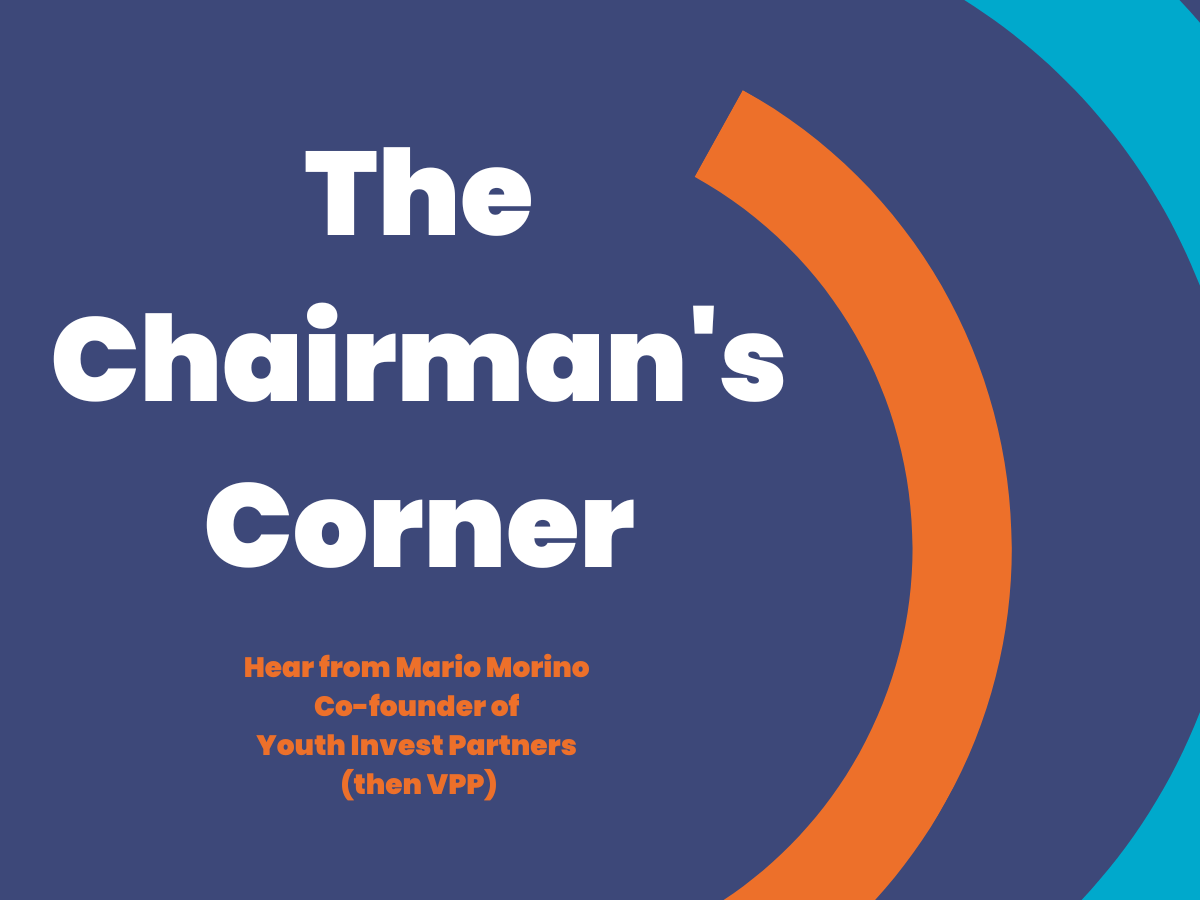Chairman’s Corner: March 2004

Giving While Living, A Framework for Personal Philanthropy
by Mario Morino, Co-founder of VPP
For anyone who is serious about their philanthropy, one of the biggest challenges is to figure out how best to deploy their charitable dollars. In the beginning, people often are overwhelmed—should they start a family foundation? Should they endow a fund in perpetuity? Should they identify a few organizations and support those? Should they focus on “giving while living” and, if so, how should they best do this?
Recently, I participated in a discussion at the Council of Foundations meeting in New York on the pros and cons of “giving while living.” The lively conversation reinforced the highly personal nature of philanthropy and that there is no magic formula for effective giving.
For many people, setting up an endowed foundation allows them to support individuals and organizations working in areas that are important to the giver, and provide an opportunity for their children to continue their efforts in the future. For others, like me, it is important to engage in philanthropy today and see the fruit of the efforts in their own lifetimes. There aren’t clear rights or wrongs. What is important is that individuals find a philanthropic path that allows them to express their values and make a difference along the way.
During the panel, I shared a personal framework that guides my efforts. This framework is the result of a great deal of reflection on my part, of reaching out to others who had “been there, done that,” personal experience working with a variety of nonprofit and community-based organizations, and discussions with hundreds of people from foundation executives to scholars to community leaders to philanthropists.
This framework isn’t meant to suggest that I have found “the answer.” Rather it is offered as a sincere attempt to encourage others who are crafting their philanthropic strategies to think through some of the issues that I have labored over for more than 10 years.
Philanthropy should be part of a broader life plan and purpose. Everyone has different reasons for engaging in philanthropy and in their goals for doing so. It is essential to understand what you really want to achieve and to ask yourself the following questions:
- Is there a strong passion or cause in your life that you want to act upon?
- Do you want to nurture in your children a desire to be civic participants and leaders?
- Do you want to leave a legacy and, if so, what kind of legacy and for what purpose?
- Is this going to be a casual or serious effort? This is perhaps one of the hardest questions to ask, but it is important to be brutally honest in the answer.
- Do you want to be directly and personally involved, participate but be less involved, or delegate the responsibility for carrying out your objectives to someone else?
- What kind of impact do you want to have?
Until you are able to answer these fundamental questions honestly, it’s very hard to make any decisions about the direction your philanthropy should take.
Establish the level of financial commitment at the outset. It is very important to be clear about how much money you want to devote to philanthropic initiatives. Understand the kind of financial commitment you envision making to your philanthropy and over what period of time. Whatever the number, make it significant if you hope to have impact.
Take time to observe and learn before setting your plans in motion. The philanthropic terrain and processes are not what one might assume. Take the time to understand the landscape, the issues facing the people, and communities you want to help. Have patience with your own learning and with the organizations you want to support. Before we made our first grant, we took a year and talked to hundreds of people to understand where our efforts might make a difference. Most people are not going to spend that kind of time, but it is worth investing the effort to talk to people who are expert in the issues and causes in which you have an interest.
Stay true to your personal framework. It is vital to remain true to your intent and personal values. Along the way it will be tempting to change course. Having a clear framework for your philanthropy is vital because it is too easy to lose focus and dilute your efforts. I’ve held steady to my overall goals and the approach we defined for philanthropic involvement, whether through my personal philanthropy or through the philanthropic organizations I co-founded. Certainly the way we go about achieving those goals has evolved as we’ve learned and deepened our own understanding of the issues. However, there has always been an underlying vision that drives our efforts and we continue to evaluate our efforts against that framework.
No matter what course one chooses, the important thing is to gain a sense of what you want to accomplish with your philanthropy and become engaged with those you wish to support. One of the gifts in my work has been the chance to meet, learn from, and serve some remarkable leaders. I am impressed every day by the passion, energy, and commitment of the people and organizations serving youth and families that we have the privilege to get to know and with whom we work at VPP. If we can take steps that give these visionaries the opportunities to grow and succeed with what they believe is possible, then positive, meaningful change for children and families will be a reality. And in my view, this is what philanthropy is all about—using our talents and financial resources effectively to help others have an impact in a significant and lasting way.



